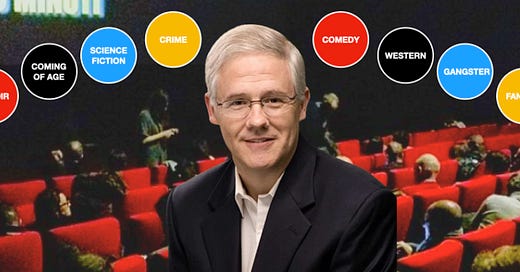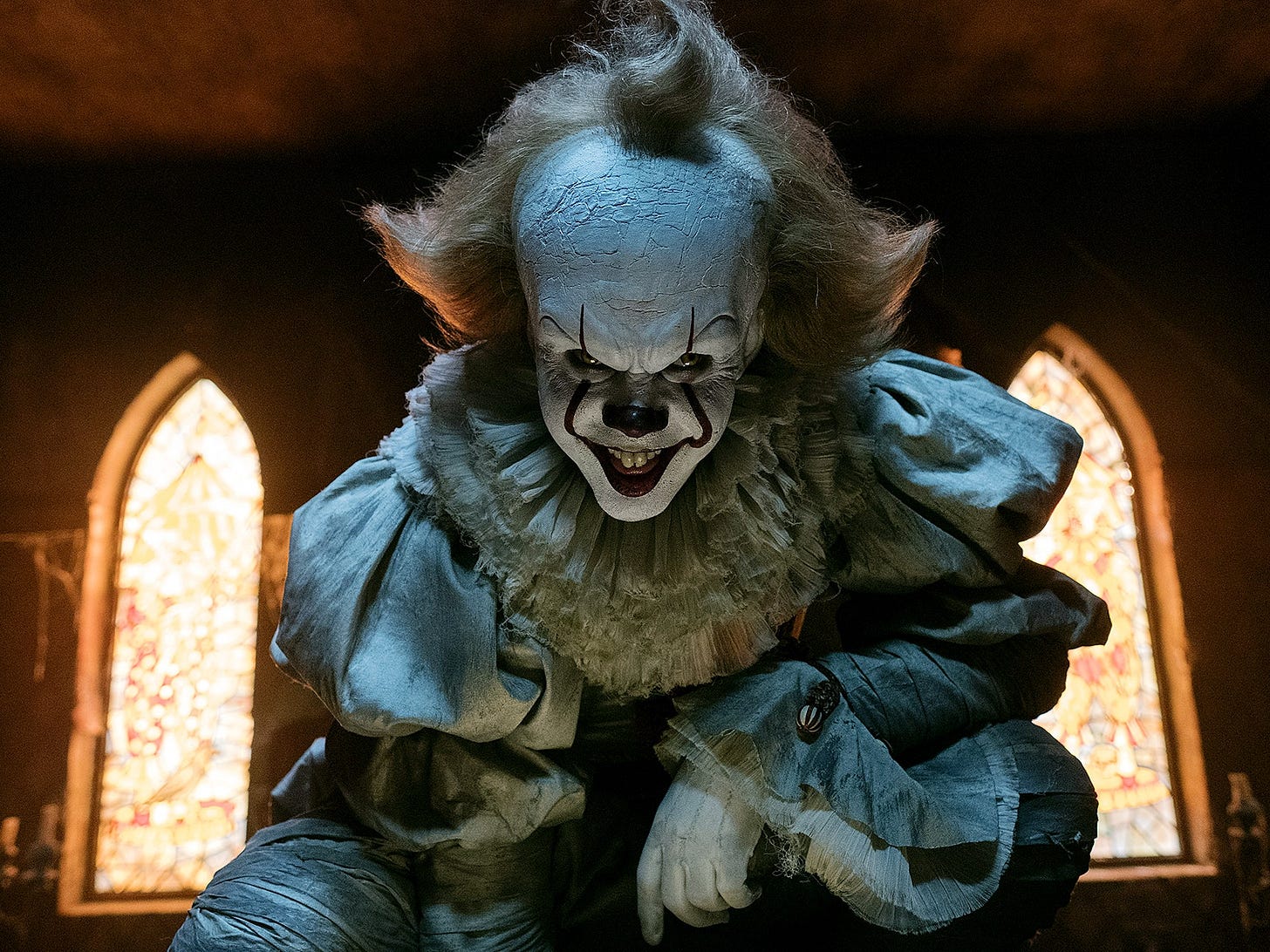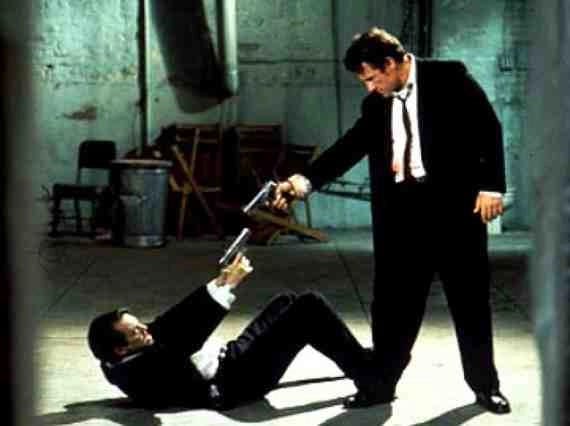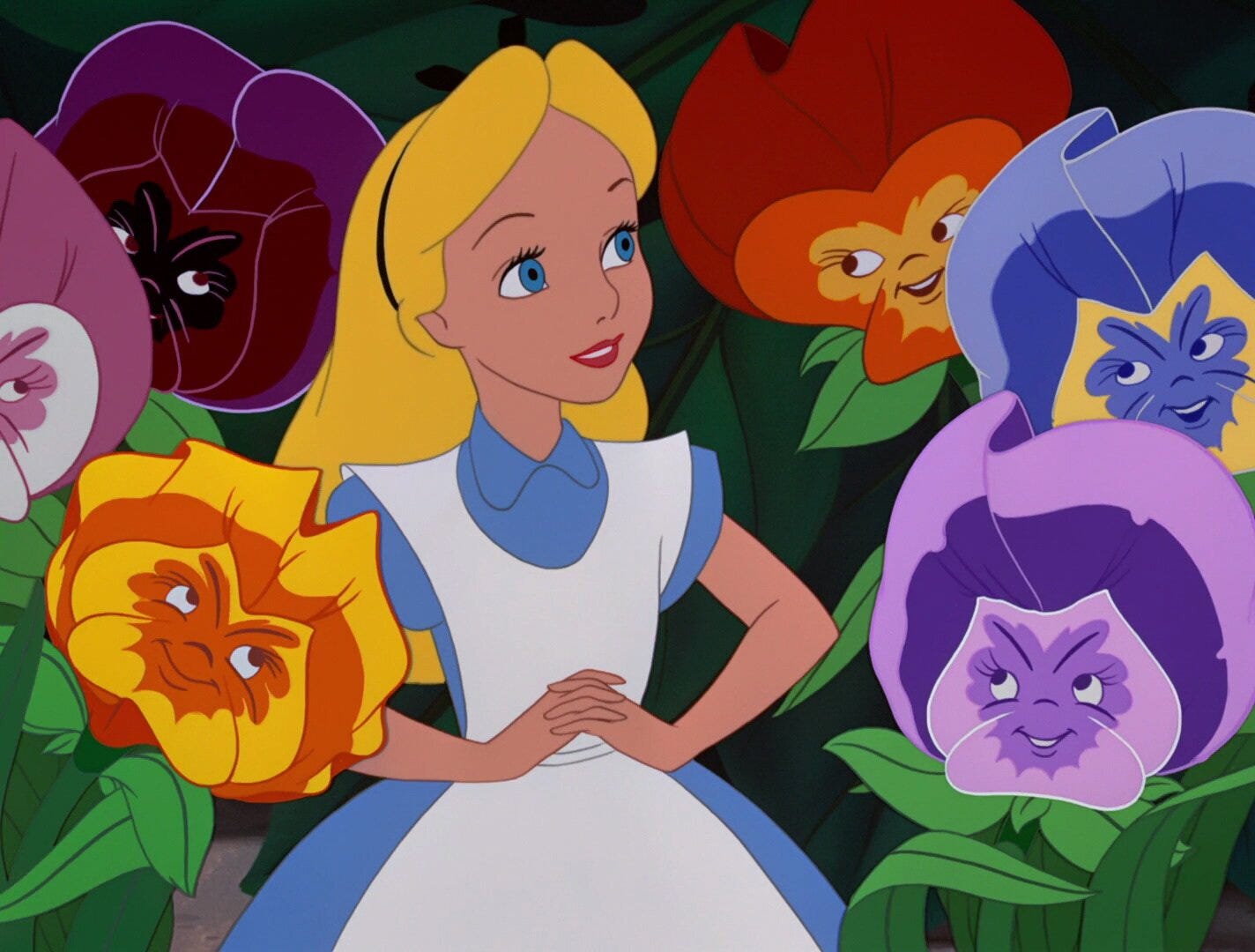Learn The Philosophies Behind 14 Major Genres in 6 Minutes
1,015 Words on Transcending Your Storytelling:
Hey there,
Over the last few months, I’ve been a little obsessed with a book called:
The Anatomy of Genre:
How Story Forms Explain The Way the World Works
Why? Many reasons.
In short, it’s helped me understand how to best combine tried-and-true story structures with weird, new ideas. Giving me the tools and strategies to write wildly original stories that people can still relate to. Which means I can transcend genre, bring more ideas to life, and captivate more readers.
What’s more, The Anatomy of Genre is has made me rethink the purpose of genre altogether. Meaning, it doesn’t just help us categorize books, movies, and plays—it also shows us how the world works.
Each one through its own unique philosophy.
Check this out.
The 14 Philosophies
Behind The 14 Major Genres:
The Philosophy of Horror:
Confront death and face your ghosts from the past.
Truby says the Horror genre has a deep connection to religion and the human psyche.
Horror narratives, Truby says, often explore themes of sin, punishment, and the unknown—serving as a mirror to our deepest fears and moral dilemmas.
At its most fundamental level, Horror is the most primal of all storytelling forms.
The Philosophy of Action:
90 percent of success is taking action.
The Action genre is about the pursuit of success. (By whatever means necessary.)
Truby emphasizes that action stories revolve around a hero's quest for freedom, honor, and victory, often against overwhelming odds. These narratives highlight themes of courage, resilience, and the relentless drive to overcome obstacles.
The Philosophy of Myth:
Seek immortality by finding your destiny in this life.
The Myth genre delves into the human quest for identity, purpose, and immortality.
Myths often feature archetypal characters embarking on epic journeys, confronting formidable challenges, and seeking profound truths about existence.
These stories serve as metaphors for personal transformation and the universal human experience.
The Philosophy of Memoir & Coming of Age:
Examine your life to create your true self.
Memoir and Coming of Age both center on the formation of self-identity.
Memoir involves crafting the self through nonfiction techniques, allowing individuals to reflect on their lives and shape their future.
However, Coming of Age stories depict the protagonist's journey from adolescence to adulthood, using fictional narratives to explore personal growth and self-discovery.
The Philosophy of Science Fiction:
Make the right choices now to ensure a better future for all.
Science Fiction is meant to explore human evolution on a grand scale, often addressing societal and cultural transformations.
He emphasizes that science fiction isn't merely about futuristic technology but serves as a lens to examine the present world, morality, and the direction in which humanity is heading.
(One of my favorites.)
The Philosophy of Crime:
Protect the weak and bring the guilty to justice.
Think of the Crime genre as an intricate dance between lawbreakers and those who seek to apprehend them.
These stories often highlight moral ambiguities, the allure of transgression, and the complexities of justice. Most of all, crime stories emphasize the cat-and-mouse dynamics between criminals and law enforcers.
They focus on the strategies and psychological maneuvers employed by both sides.
The Philosophy of Comedy:
Success comes when you strip away all facades and show others who you really are.
Comedy is meant to expose human flaws and societal absurdities through humor. It often highlights the gap between how individuals perceive themselves and the reality of their situations, leading to humorous outcomes.
For example:
When humans are reduced to animals. (Ex. Shrek)
When human adults are reduced to children. (Ex. Stepbrothers)
When humans are reduced to machine. (Ex. Office Space)
By employing irony and satire, comedy encourages audiences to reflect on human nature and societal norms.
The Philosophy of Western:
When you help others make a home, you create a civilization where everyone is free to live their best life.
The Western is a narrative that explores the rise and fall of civilization, often set against the backdrop of the American frontier.
These stories typically depict the tension between individual freedom and societal order, highlighting themes of exploration, justice, and the taming of the wilderness.
The Western serves as a metaphor for the American Dream, illustrating both its promises and pitfalls.
The Philosophy of Gangster:
Don’t be enslaved by absolute power and money or you will pay the ultimate price.
The Gangster genre explores the dark side of the American Dream.
These stories often depict individuals who rise to power through criminal enterprises, highlighting themes of ambition, power, and moral corruption.
The Gangster genre serves as a critique of societal values, showcasing how the pursuit of success can lead to one's downfall.
The Philosophy of Fantasy:
Discover the magic in yourself the makes life itself an art form.
John Truby explores the Fantasy genre as narratives that delve into the human desire to find magic in the world and within ourselves.
Fantasy stories often feature quests in imaginary realms, where heroes confront mythical creatures and overcome supernatural challenges.
These tales serve as metaphors for personal growth, transformation, and the pursuit of a life imbued with wonder and meaning.
The Philosophy of Detective & Thriller:
Look for the truth and assign guilt in spite of the danger.
The Detective genre centers on the protagonist's quest for truth, unraveling mysteries through observation, deduction, and logical reasoning.
Conversely, the Thriller genre emphasizes the protagonist's struggle for survival against imminent threats, focusing on suspense, tension, and high stakes.
While both genres involve elements of danger and revelation, the Detective story is primarily about solving a puzzle, whereas the Thriller is about overcoming a direct and often life-threatening challenge.
The Philosophy of Love:
Learning how to love is the key to happiness.
Truby identifies the Love genre as narratives that explore the profound connection between individuals, focusing on the challenges and triumphs of forming deep, meaningful relationships.
These stories delve into the complexities of intimacy, vulnerability, and the transformative power of love, often highlighting personal growth and the human desire for companionship.
And that’s it!
Whether you write fiction or nonfiction, you can use the themes and beats from different genres to add structure to your story, and use parameters that give you the freedom to combine genres, explore complex characters, and transcend storytelling.
Because genre is more than just a way to categorize.
It’s a way to understand how the world works.
It’s been a huge help for me.
Hope it helps you, too :)
P.S
Let me know if you have questions. I’d love to chat about it.
Read “The Anatomy of Genres” by John Truby
Here’s a link —> The Anatomy of Genres by John Truby

















So good! Thanks Jake!